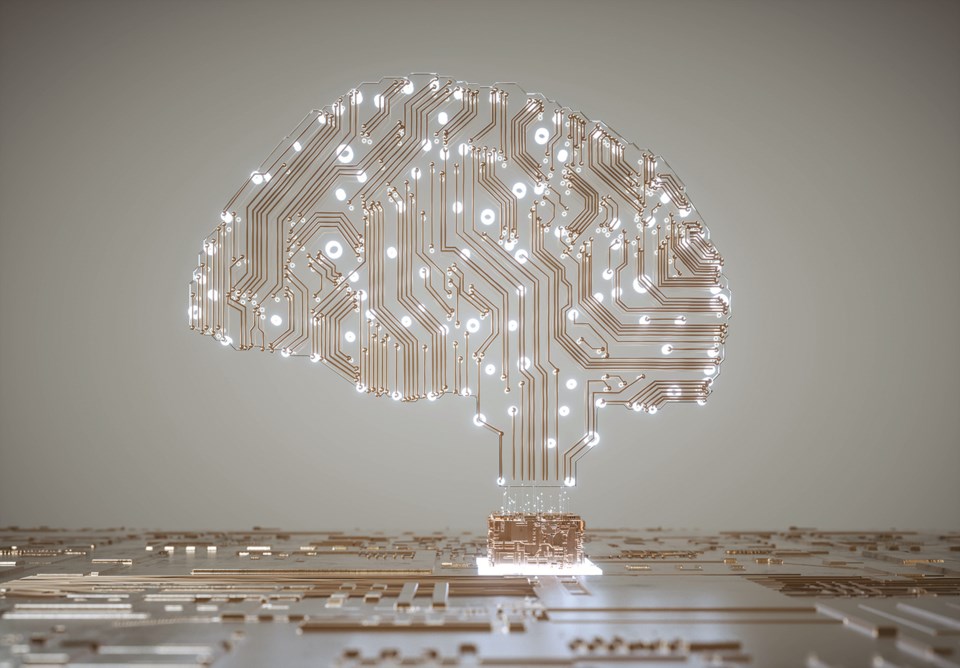ST. PAUL – Over the last year, artificial intelligence (AI) has grown to change the dynamics of how people do their jobs, acknowledged assistant superintendent Keith Gamblin, during St. Paul Education’s trustee board meeting on Jan. 17.
A lot of students under the school authority’s umbrella are also leveraging AI, “changing the way they work and learn,” Gamblin told the board. And AI is “something we’re trying to be on top of as much as possible.”
Gamblin provided examples of AI tools that could be used by students and teachers, including one that could create a presentation based on documents uploaded into it. Another example he provided is ChatGPT, a generative AI chatbot that can respond to questions or a user’s request – as if it were a human encyclopedia. Responses can include a variety of written content.
ChatGPT can be integrated into other tools like Word documents, Google Docs, and many others. Gamblin said ChatGPT and other forms of AI tools can be utilized by anyone and has huge implications for students and teachers.
Gamblin said he has used AI to prepare for literacy committee meetings in the past. But the use of AI requires responsible use.
“There’s that balance. Students need to be able to write without these tools, but they also need to know how to use these tools responsibly.... to make them more efficient learners and writers,” he said.
Trustee Darcy Younghans asked if there are tools that prevent students from using AI, expressing his concern that AI may prove to be an obstacle in student learning.
Gamblin affirmed that there are. For example, some teachers can set up a test online where students would have to log-in, preventing them from using third-party tools like AI.
Gamblin suggested that in the future, there might also be tasks where teachers would require students to write an essay, for example, with AI. Then students would describe how to further modify the essay.
Peter Barron, superintendent of St. Paul Education, also recognizes that AI will get more popular in the future – just like calculators did – and it’s important for educators to be prepared.
Board Chair Sylvie Smyl said she’s concerned about foundational learning. “For me, it’s the foundational learning piece that I’m wary of... [and] I think that’s what you were alluding to [Younghans],” she said. She did acknowledge that it is great to have tools available, like AI.
Gamblin agreed. “[AI] is scary and exciting, and there’s opportunities to leverage it to teach kids,” he said. It’s simply a matter of figuring out the best way to do that. He also acknowledged that school divisions everywhere are having to address the same issues with AI.
Trustee Dwight Wiebe also agreed. “It’s very exciting. We talk about innovation as we move forward in education, but it’s also important that we maintain some level of education,” he said.
Wiebe believes it is important for students to have a strong educational foundation to be able to effectively use tools like AI.
Gamblin concurred with the board. “Because without foundational knowledge... how are they going to know whether this is any good? How are they going to edit [AI-generated content] and make it better? So, they need that [foundational knowledge] piece first to be able to effectively use these tools.”
Alberta Teachers Association
In May 2023, during the Alberta Teachers Association’s (ATA) 2023 Annual Representative Assembly (ARA), the organization passed a resolution that with the use of AI in the classroom, data privacy and student safety should be the primary priority.
Other resolutions passed state schools should have to evaluate AI tools before their implementation, and “that understanding of [AI’s] benefits and concerns, including algorithms and data collective/use, should be part of technology in schools.”
The ATA also released tips for using AI in schools on Jan. 16, which includes cautioning educators that while AI tools are becoming more advanced, they are not perfect.
“They ‘hallucinate’ and can make up facts, so always double-check or audit their [students] work for accuracy. They may also be contributing to a loss of human judgment or a diminishing of the importance of original thought, and thus contributing to plagiarism. Now is a perfect opportunity to think about digital literacies and the responsible use of technology,” according to the ATA.
The ATA is conducting a multi-year project on AI, collaborating with the University of Alberta’s Faculty of Education and the Kule Institute for Advanced Studies. The research's aim includes developing policies for AI, as well as guidelines and resources educators can use.



